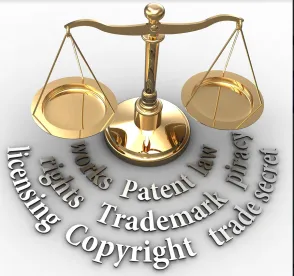On June 22, 2018, the Supreme Court issued a 7-2 decision in WesternGeco LLC v. ION Geophysical Corp., No. 16-1011 (2018), in which it held that a patent owner may recover foreign lost profits under 35 U.S.C. §§ 271(f)(2) and 284, expanding the scope of damages available under the Patent Act.
Background
WesternGeco LLC asserted four patents for ocean floor survey technology against ION Geophysical Corp. under §§ 271(f)(1) and (f)(2). ION manufactured components for a competing system in the United States and then shipped those components to companies abroad. Those overseas companies then combined the components into systems that competed with WesternGeco. At trial, the jury awarded WesternGeco $12.5 million in reasonable royalties for the manufacture of the components in the United States and $93.4 million in lost profits for the sales WesternGeco lost to the overseas companies. On appeal, the Federal Circuit held that ION was liable under § 271(f)(2), but that the Patent Act did not permit WesternGeco to recover the $93.4 million in lost foreign sales.
The Supreme Court’s Decision
The Supreme Court reversed the Federal Circuit’s denial of lost profits, finding that the “conduct relevant to the statutory focus in this case is domestic.” Consequently, WesternGeco’s recovery of $93.4 million in lost profits for the foreign sales was not an impermissible extraterritorial application of U.S. law. The Court reasoned that the focus of § 284’s pronouncement that the “court shall award the claimant damages adequate to compensate for the infringement” is “the infringement.” The infringement in question occurred under § 271(f)(2), which the Court found “focuses on domestic conduct,” specifically “suppl[ying] in or from the United States.” Thus, the Court concluded that because WesternGeco’s award of lost profits was no more than “a domestic application of § 284,” the award was not barred due to extraterritoriality.
WesternGeco is interesting for what it left undecided. First, by finding the award of lost profits pertained to domestic activity, the Court sidestepped resolving whether the presumption against extraterritoriality applies to statutes such as 35 U.S.C. § 284 that merely provide a general damages remedy for conduct that Congress has declared unlawful. Second, the Court declined to address whether “other doctrines, such as proximate cause, could limit or preclude damages in particular cases,” thus leaving for another day the question of how far removed damages incurred overseas may be from the domestic infringing act to still be compensable.
Justice Gorsuch’s dissenting opinion, which was joined by Justice Breyer, cited the same reference to “the infringement” in § 284 relied on by the majority, but reached the opposite conclusion: “Because an infringement must occur within the United States, that means a plaintiff can recover damages for the making, using, or selling of its invention within the United States, but not for the making, using, or selling of its invention elsewhere.” The dissenters expressed concern that the opinion “would effectively allow U.S. patent owners to use American courts to extend their monopolies to foreign markets,” and pointed to “dramatic examples” of expanded damages that would theoretically be permitted by the majority’s opinion, e.g., recovery of worldwide lost profits for microchip sales based on the development of an infringing prototype microchip in the United States.
Implications
While the Supreme Court’s holding in WesternGeco is limited strictly to damages under 35 U.S.C. § 271(f)(2), WesternGeco will likely open the door for recovery of foreign lost profits under other statutory bases for infringement under § 271. Notwithstanding the dissent’s predictions of dramatic expansion of U.S. patent protection, general principles of proximate cause may check overreaching damages theories.
As for WesternGeco and ION, the Supreme Court’s decision is likely not the end of their dispute. On May 7, 2018, the Federal Circuit affirmed the Patent Trial and Appeal Board’s invalidation of claims of three of the four asserted patents that gave rise to WesternGeco’s $93.4 million lost profits award. See WesternGeco LLC v. ION Geophysical Corp., Case No. 2016-2099. Given the invalidation of these patent claims, WesternGeco may face a challenge to the amount of its $93.4 million lost profits recovery.





 />i
/>i

